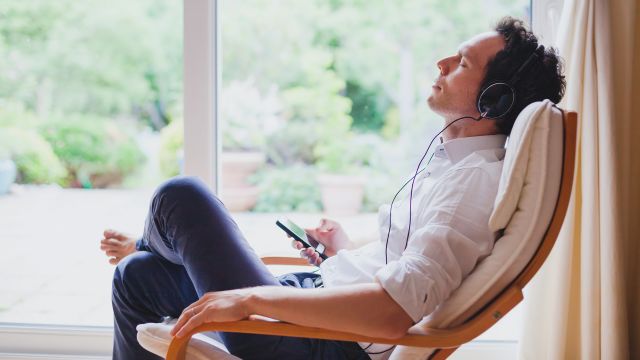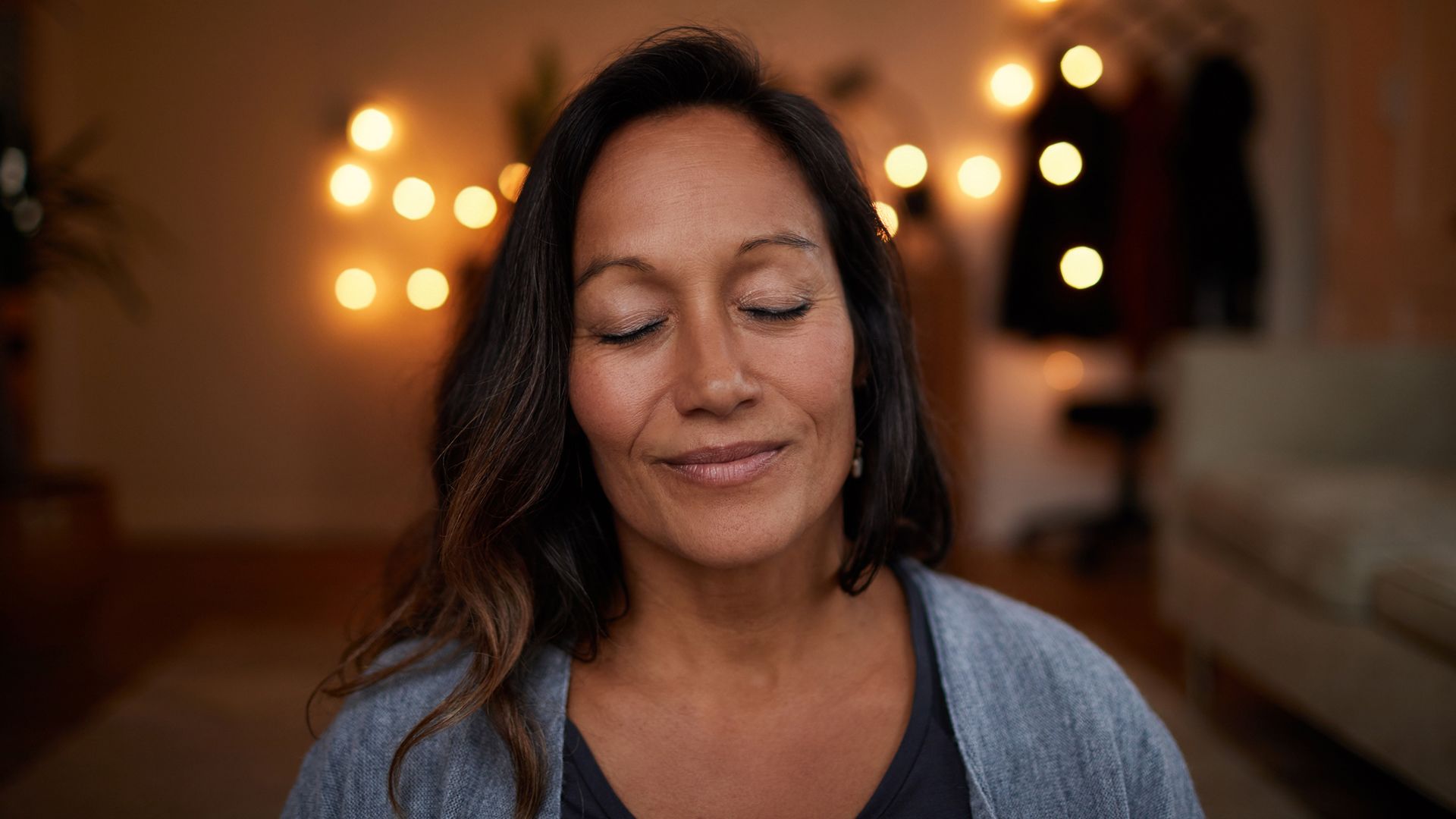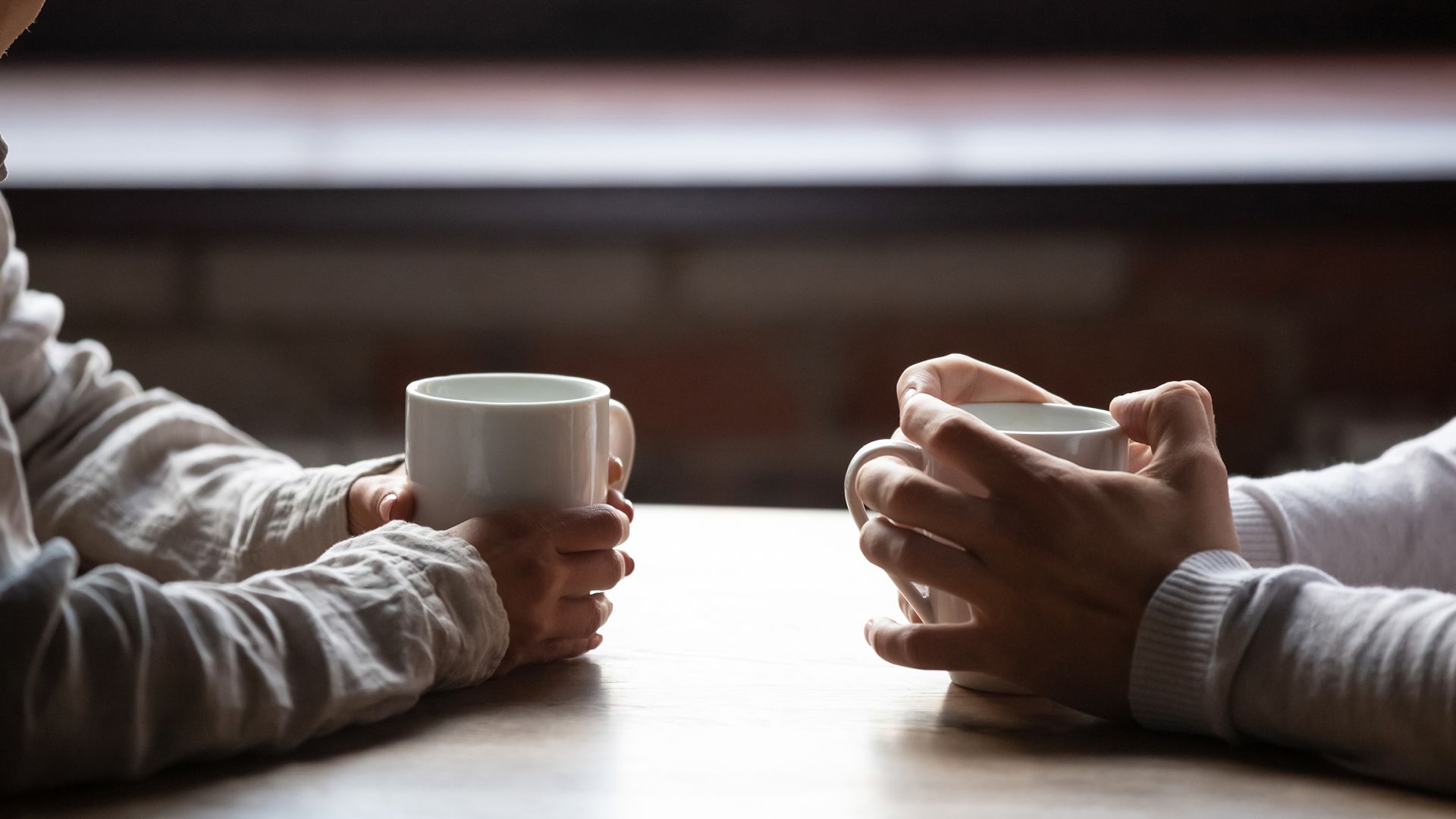Updated on August 2, 2023
The COVID pandemic was just one recent example of how prolonged worry—health risks, economic strain, social disconnection, and uncertainty about the future—can have mental health consequences. While COVID is now a disease we’re learning to live with, life is generally full of uncertainty and stressful events, even in the best of times. Having little or no control over them may worsen feelings of worry or distress.
Setting good mental habits can help prevent moments of worry from escalating. Jud Brewer, MD, PhD, head of mental and behavioral health at Sharecare and director of research and innovation at Brown University’s Mindfulness Center suggests the following five practices to help you stay calm and grounded when dealing with uncertainty:
Be present
It’s important to check in with yourself daily to see how you’re feeling. Anxiety presents itself in different ways for different people. You may feel restless, exhausted, irritable, or unable to control your emotions. You may also find you cannot concentrate on a task. This stress often results in lack of sleep or lashing out at family members.
If you notice these types of feelings crop up, Brewer suggests taking a few minutes to practice the following routine.
First, take a few deep breaths or focus your awareness on your feet. Count up to 30 seconds, making sure you don’t cut this short. This will help you stay calm.
Second, get in touch with your senses. Spend a few moments focusing on what you hear, smell, see, taste and touch. As you go through your day, practice each of these to stay in the moment. Smell your dinner as it cooks, listen to the sound of water running from the faucet, touch a warm blanket as you relax.
Curb your news cravings
A constant barrage of troubling news and statistics can be overwhelming for many people. This can make it tough to strike a balance between staying informed and becoming obsessive. “You can either set up the habit of checking the news and constantly panicking, or you can set the habit of setting limits and staying calm,” Brewer advises.
Cap your news reading or watching at 2 to 3 times per day for a maximum of around 15 minutes each time. If that still provokes anxiety, drop your consumption to once per day. Turn off automatic notifications from news sites on your phone. Consider also setting a limit for skimming social media, especially if you follow accounts that post about current events.
The timing of these news breaks matters, too. “Like cutting off caffeine and alcohol intake in the evening so you can sleep, do not check the news before going to bed,” Brewer. suggests “If you find yourself craving news when you first wake up in the morning, don’t check as the first thing you do.”
Stay connected
If you feel the urge to go on social media, ask yourself if you’re actually craving a social interaction instead. “Often we simply need connection. Give your spouse or kids a solid hug, or cuddle with your pet if you have one,” Brewer says.
If you are alone but need some comfort, call or video chat with a family member or friend. Keep in mind that you don’t want to spread your anxiety to them. Rather, seek comfort in hearing someone else’s voice and experiencing a connection.
Staying connected may also mean making time for your religious and spiritual practices. Read a comforting passage, watch a sermon online or call someone from your religious community.
Take things one day at a time
During unpredictable and challenging times, focusing on the “here and now” can help. “Practice taking it day by day, or even hour by hour, to keep yourself calm and thinking,” Brewer says.
Focus on a daily routine. It can be as simple as taking a shower, changing your clothes and deciding what you will eat for the day. You can also make a plan for keeping your family entertained, any work you need to do or projects that feel fulfilling.
Show kindness to others… and yourself
Stress and uncertainty can make it hard to shift the focus from your own worries to others. But small acts of kindness or charity can boost your mood and mental well-being.
Be sure to also show yourself the same kindness. Try channeling your stress into activities that you know can help bring calm. Nourish yourself with healthy food. If moving around helps you feel better, make time for exercise. Practice meditation for 5 to 10 minutes each day.
If you find yourself in a constant state of stress or unable to control your emotions, consider reaching out for professional help. If you’re experiencing a mental health crisis, get in touch with your healthcare provider, text HOME or NAMI to 741741, or call the National Suicide Prevention Lifeline at 1-800-273-8255 or call, text, or chat 988 as soon as possible.
You can also look into telehealth options. There are many companies offering therapy services through video calls. Contact your insurance company to find a doctor or to ask about their preferred telehealth platform.
If you are having trouble managing anxiety, visit Sharecare’s DrJud.com website for more resources. For an immersive, evidence-based mindfulness experience, download the Unwinding Anxiety mental well-being app.






